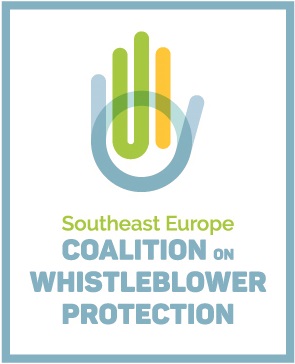Authors: Angela Rajchevska, Bjanka Stankovikj, Kristina Atovska
The country allocates 266 thousand Euros a year for hiring special external advisers who are to advise ministers and other holders of state functions in order to perform their tasks more efficiently.
SCOOP came to this amount spent on 34 “special advisers” engaged in only 13 ministries.
Article 27 of the Law on Administrative Officers, the levels within the categories of administrative officers, additionally describes them with title, including: B1 – State Adviser, B1 – Adviser whereas Article 22 of the Law on Public Sector Employees provides for up to 3 special advisers in the Cabinet of Ministers.
“The former are employed under the law and they have to pass certain exams for the working position, it is about career officers. Others have been admitted, whether they are party soldiers, if they really need them, the administration is simply filled and the budget of Macedonia is used”, explains Borche Davitkovski, university professor in the field of administrative law at the Iustinianus Primus Faculty in Skopje.
THE PRIME MINISTER WITH 13 ADVISERS
The list of Prime Minister’s advisers that SCOOP received in response to the request for free access to public information includes 8 persons, including Bojan Marichikj, Dane Taleski, Dragan Jovanov, Ljupka Cvetkova, Lenche Nikolovska, Cveta Laskova, Tanja Chacharova Ilievska and Marjan Zabrchanec.
Their monthly fees range from 50 to 55 thousand denars. Per month it is about 425 thousand denars or nearly 7000 Euros. In addition to the financial compensation, the above mentioned persons have an approved limit for using an official telephone in the amount of 1,180 denars.
Recently, in public, the government has published the total list of advisers as well as the special advisers among which are: Ljube Boshkovski – special adviser for foreign investments, Fidan Kolev – special adviser on transport and communications, Rubin Zemon – special adviser for development of a multicultural society, interculturalism and intercultural communications, Fatmir Bytyqi – Special Adviser for implementation of the Framework Agreement and Gjorgji Tasev – Special Adviser for youth and sport.
Ministry of Interior (MOI) has most special advisers – 15, while least are in the Ministry of Foreign Affairs (MFA) and the Ministry of Environment and Physical Planning – only one.
Special fees for special advice are taken by people who advise the ministers in Macedonia. In addition to the monthly, they also receive travel and telephone allowances.
The research on the number and functionality of the advisers was particularly targeted at the ministries and the prime minister’s cabinet. The documents that SCOOP came to reveal that in the Ministry of Health, in the course of a year, about 28 thousand Euros are allocated for three special advisers. At the same time, they are the highest paid among the special advisers from other ministries. Their salaries range from 37 to 54 thousand denars, and least paid are in the Ministry of Economy with salaries of 25 thousand denars.
MONEY FOR TELEPHONE COSTS, TOO
At least 300 and a maximum of 1,500 denars are allocated monthly from the ministries for the special advisers’ telephone costs. In some ministries travel expenses are regulated by internal regulations.
Ministry of Education 1,180 denars
Ministry of Information Society and Administration 1,180 denars
Ministry of Health 1,500 MKD
Ministry of Justice 1,200 denars
Ministry of Defense 350 denars
Ministry of Finance 1,500 MKD
In the Cabinet of the Minister of the Interior there are a total of 14 advisers. For January 2018, together they received a total payment of 580,360 thousand denars.
Among the advisers who receive the fee of about 41 thousand denars is also Stojanche Angelov, adviser on police and criminal matters. He did not want to talk about the obligations to the ministry, where he gets twice a bigger fee than the average salary in the country.
“As for my function as a state adviser to the Minister of Interior, I cannot speak about this because my function is police and secret”, Angelov says for SCOOP.
Rade Jankovski is special adviser in the Ministry of Interior, hired with a service contract in a period of one year. The information about his fee is classified as a secret.
AVERAGE SALARY OF 33 THOUSAND DENARS
Apart from the Ministry of Health, at the top, ministries that allocate over 20 thousand Euros from the budget for their special advisers are the Ministry of Education and Science, the Ministry of Defense, the Ministry of Information Society, the Ministry of Agriculture and the Ministry of Transport and Communications.
Less than 20 thousand Euros are allocated by the Ministry of Justice, the Ministry of Local Self-Government and the Ministry of Economy.
The adviser Taiba Emini for SCOOP says that as a special adviser she helps in the communication and cooperation between the Minister and other state institutions.
“I have been employed under the law and I have a contract for a cabinet officer”, Emini said.
Sanela Skrijejlj, adviser in the Ministry of Labor and Social Policy, for her engagement as a special adviser says it is regulated by an agency for temporary employment. As a special adviser, she says she coordinates the work of the minister’s cabinet, as well as the coordination of the sectors in the implementation of ongoing reforms in social protection and child protection.
The Ministry of Environment and Physical Planning has hired one special adviser in the area of Euro integration and international cooperation. Gujjane Saksipi receives a fee of 42 thousand denars for his advice, which annually costs the ministry about 8 thousand Euros.
In the Ministry of Foreign Affairs, the only special adviser is Jane Lazevski, who receives a fee of 32 thousand denars, i.e. 6 thousand Euros per year for his advice in the field of public relations.
ONE ADVISER PER FIVE EMPLOYEES
In addition to the special advisers, in each ministry, nearly 20 per cent of employees have the title adviser. From the list of employees posted on the websites of the ministries, we have calculated how many of them have the title of advisers. On average, each ministry of five employees has one adviser.
| Ministry | Employees | Advisers | Average adviser per employee |
| Ministry of Finance | 623 | 120 | 1 adviser per 5 employees |
| Ministry of Economy | 152 | 33 | 1 adviser per 5 employees |
| Ministry of Health | 136 | 38 | 1 adviser per 4 employees |
| Ministry of Labor and Social Policy | 202 | 59 | 1 adviser per 3 employees |
| Ministry of Local Self-Government | 56 | 14 | 1 adviser per 4 employees |
| Ministry of Transport and Communications | 265 | 62 | 1 adviser per 4 employees |
| Ministry of Agriculture | 621 | 90 | 1 adviser per 7 employees |
| Ministry of Education | 296 | 63 | 1 adviser per 5 employees |
| Ministry of Justice | 106 | 21 | 1 adviser per 5 employees |
| Ministry of Culture | 145 | 40 | 1 adviser per 4 employees |
| Ministry of Foreign Affairs | 286 | 18 | 1 adviser per 16 employees |
Staff lists from the Ministry of Environment, Interior, Defense and Information Society were not available to us.
ARE THEY REALLY NECESSARY?
How many advisers and do the ministers and the Prime Minister need special, external advisers, in addition to so many regularly employed advisers? Do they have any results and what are the results they deliver?
Professor Davitkovski says special advisors usually work for the party, not for the institution that hires them.
“It is often the desire to accommodate some party soldiers, as it was when we had a case of eighty advisers sitting in the government and doing nothing, but simply agitating for the party. This is evident when there is a change of government. For example, the former party had no employees, they were all advisers. Now they will be in the party. Whereas the current government will not have a single one employed in the party because now they are all employed as advisers, they will cover their jobs through some such advisers and various organs. Just to receive salary and to carry out party activities”, he says.
(The story was is supported within the NED project “Promoting accountability through investigative reporting”)





